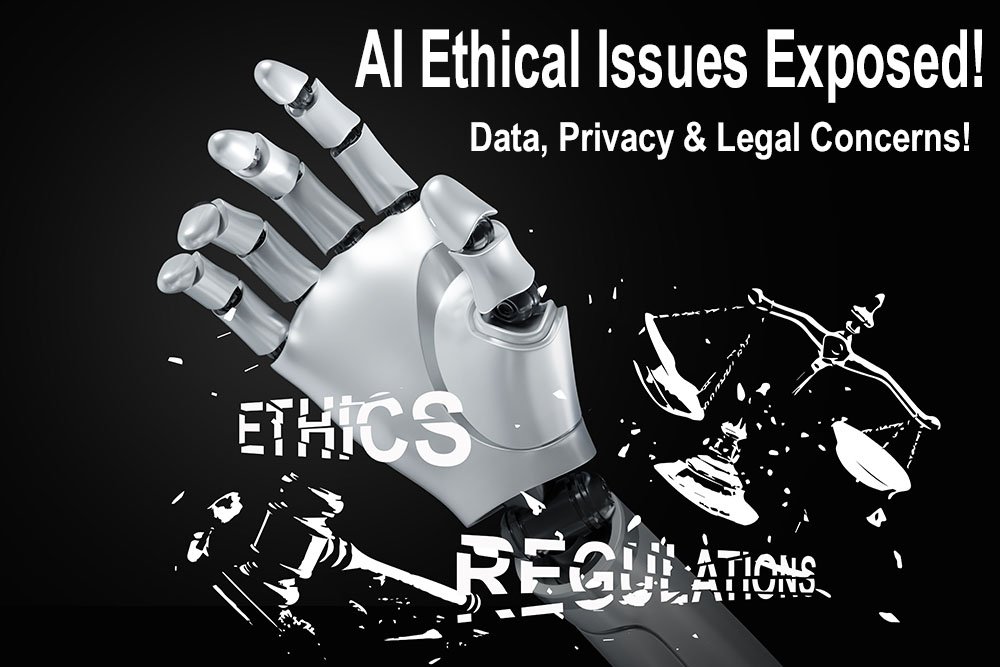The Surveillance State And AI Therapy: Privacy Concerns And Ethical Dilemmas

Table of Contents
Data Collection and Privacy Violations in AI Therapy
The allure of AI therapy lies in its potential to personalize treatment and improve access to mental healthcare. However, this personalization relies heavily on the collection of vast amounts of sensitive patient data.
The Scope of Data Collected
AI therapy apps collect a wide range of data, including:
- Voice recordings: Capturing the nuances of speech patterns and emotional tone.
- Text messages: Analyzing the content and sentiment expressed in written communication.
- Location data: Tracking user activity and potential environmental influences on mental health.
- Biometric data: Gathering information like heart rate and sleep patterns through wearable devices.
This data is used to create personalized treatment plans, identify patterns, and predict potential mental health crises. However, this extensive data collection raises serious concerns about AI therapy data privacy and patient data security. The potential for misuse and unauthorized access to this highly sensitive information is significant. Furthermore, a lack of transparency regarding data handling practices in many apps leaves patients vulnerable and uninformed. Data breaches, a constant threat in the digital age, pose an especially high risk given the sensitive nature of the information involved.
Algorithmic Bias and Discrimination in AI-driven Mental Healthcare
The algorithms powering AI therapy apps are not immune to bias. In fact, AI bias in healthcare can lead to discriminatory outcomes, perpetuating existing inequalities in access to and quality of care.
The Role of Algorithmic Bias
Biases embedded in AI algorithms can stem from several sources, including:
- Biased training data: If the data used to train the algorithm reflects existing societal biases, the algorithm will likely perpetuate those biases.
- Lack of diversity in AI development teams: A lack of diversity in the teams designing and building these algorithms can lead to a lack of awareness and understanding of the diverse needs and experiences of different patient populations.
This can manifest in several ways, such as:
- Misdiagnosis or inaccurate treatment recommendations: AI systems might misinterpret symptoms or provide inappropriate treatment recommendations for certain demographic groups.
- Unequal access to care: AI-powered triage systems might unfairly prioritize certain patients over others based on biased algorithms.
The ethical implications of biased algorithms are profound, potentially exacerbating existing health disparities and undermining the goal of equitable access to mental healthcare. Algorithmic fairness must be a paramount concern in the development and deployment of AI in this sensitive domain.
The Surveillance State and the Erosion of Patient Confidentiality
The data collected by AI therapy apps could become a target for government surveillance, raising concerns about the intersection of AI therapy and security risks.
Government Access to Patient Data
Several scenarios could lead to government access to this sensitive data:
- National security concerns: Governments might seek access to data related to individuals suspected of posing a threat.
- Law enforcement investigations: Patient data could be subpoenaed as evidence in criminal investigations.
Legal frameworks governing data access vary widely and may not adequately protect patient confidentiality, particularly in the context of national security or criminal investigations. The potential for mass surveillance through the aggregation of data from numerous AI therapy apps is a significant concern, potentially chilling patient willingness to seek help and eroding trust in mental healthcare providers. The conflict between public safety and individual privacy rights needs careful consideration and robust legal safeguards.
Ethical Considerations and Responsible AI Development
To mitigate the risks outlined above, a proactive approach to responsible AI development is essential.
Promoting Transparency and User Control
Transparency and user control are critical components of ethical AI in healthcare. This includes:
- Clear and accessible data privacy policies: Patients should have a clear understanding of how their data is collected, used, and protected.
- Stronger data privacy regulations and enforcement: Governments need to establish and enforce robust regulations to protect patient data.
- Mechanisms for patient data control: Patients should have the ability to access, correct, and delete their data.
Furthermore, ethical guidelines for AI development in healthcare are urgently needed. These guidelines should address algorithmic bias, data security, and patient autonomy, promoting algorithmic accountability and fairness. The development and deployment of AI in mental healthcare must prioritize ethical considerations and ensure that technology serves the best interests of patients.
Conclusion
The integration of AI into mental healthcare offers immense potential, but it also presents significant challenges concerning patient privacy and ethical considerations. The potential for data breaches, algorithmic bias, and government surveillance creates a complex ethical landscape that demands careful navigation. The future of AI therapy and the preservation of patient privacy are inextricably linked. By demanding accountability and promoting ethical AI development, including strong data protection in AI therapy, we can harness the benefits of AI in mental healthcare while mitigating the risks posed by the surveillance state. We must advocate for stronger data privacy regulations, support research on algorithmic fairness, and demand transparency from AI therapy app developers to ensure a future where technology enhances, rather than undermines, mental healthcare.

Featured Posts
-
 Butlers Heat Exit Dwyane Wade Offers Insight
May 15, 2025
Butlers Heat Exit Dwyane Wade Offers Insight
May 15, 2025 -
 Hudsons Bay Company Receives Court Approval To Extend Creditor Protection Until July 31st
May 15, 2025
Hudsons Bay Company Receives Court Approval To Extend Creditor Protection Until July 31st
May 15, 2025 -
 San Jose Earthquakes Match Preview Key Players And Predictions From Quakes Epicenter
May 15, 2025
San Jose Earthquakes Match Preview Key Players And Predictions From Quakes Epicenter
May 15, 2025 -
 Shop Now Calvin Klein Euphoria Perfume Sale At Nordstrom Rack
May 15, 2025
Shop Now Calvin Klein Euphoria Perfume Sale At Nordstrom Rack
May 15, 2025 -
 Paddy Pimblett On Dustin Poiriers Retirement His Take And Potential Implications
May 15, 2025
Paddy Pimblett On Dustin Poiriers Retirement His Take And Potential Implications
May 15, 2025
